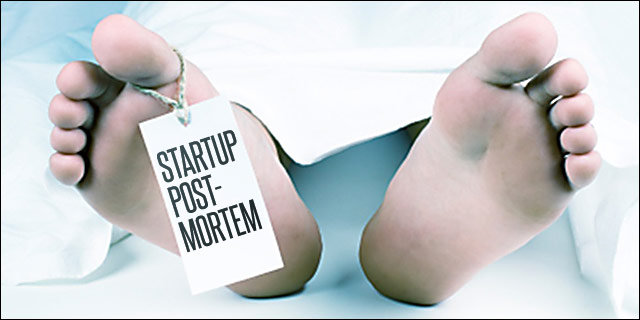
We’ve been getting so many requests lately for content on how to gain media attention that we decided to bring back a recent article with plenty of tips for those of you who are still learning how to get noticed and for those who want to gain even MORE coverage!!
A few [months] ago, I had the chance to revisit one of my favorite yearly events – The National Publicity Summit. Hosted by my old friends, Steve and Bill Harrison, and their stellar team of PR pros. The Summit brings together a wide range of experts and authors with over 100 journalists from top tv, radio and internet programs.
The most exciting (and valuable) activity by far is the one-on-one speed networking sessions with journalists where you get 2-3 minutes to pitch yourself, your business, your products or whatever else you’re looking to promote. Imagine producers from The View, 20/20, editors from USA Today, Newsweek, Wired, Rolling Stone, syndicated columnists and radio hosts…all looking to book new talent and uncover hot topics and new sources. I’ve honestly never seen anything like it.
Whether you’re just venturing out to get your first press clippings, have already secured your fair share of media recognition, or are a seasoned pro, the event always propels you further up the learning curve. It’s not all “trial by fire” though. There’s a ton of educational programming and training spattered throughout the schedule as well.
For me, the best insight comes from the massive Q&A panel featuring the members of the media. That’s when Steve asks them all to introduce themselves and talk about what catches their attention, turns them off, turns them on, and even drives them crazy. Most in the room are like sprinters getting antsy to jump out of their starting blocks into the one on one event that follows. But this is where some of the best gems of insight come from, and where I take my most copious notes.
As usual, on top of learning myself, I’m always thinking about what juicy little nuggets I can share with all of you. So, here are the top 10 takeaways for all you busy people, eager to increase your own exposure in the press:
1. Be targeted. Don’t mass email journalists or address correspondences “to whom this may concern”. Those go right into the trash. Take the time to identify the right department or column and send your pitches to specific people with a personal note.
2. Be short and to the point. Journalists are really busy people who are often inundated with pitches from strangers. Get to your pitch quickly and don’t assume they’re going to read 4 or 5 paragraphs.
3. Clearly articulate your story hooks. What do you have to say that will really grab the readers or viewers attention (let alone the journalist’s!)? Say something powerful, revealing or life altering if you can. If you only have a sentence or two to captivate, carefully consider what you’d say.
4. Talk in sound bites. Imagine the people reading or listening to your pitch, as well as their audience, all have ADD. All of your information needs to be bite sized. If the editor or producer gathers a bunch of content from you, make sure it’s easy for them to pull out a few juicy pieces they can plug into their story or lead it off with.
5. Timing is everything. Know whether you have a time sensitive story (Valentine’s day gifts for your X) vs. an evergreen story (5 tips to get in the best shape of your life). Be aware of and sensitive to the news cycles of the media you’re pitching, be ahead of the curve (but no too far ahead), be relevant and be timely. This is not always easy to ascertain, but it makes all the difference in whether their ears are peeled or glazed over when you pitch.
6. Don’t forget online. A lot of people will focus on the big platform opportunity and pursue the big television or radio shows. Most media has an online presence too and often they need fresh content to drive people there as well. Be sure to mention anything that you can offer for their site as well.
7. When they call, jump! If you’re serious about working with the media, you need to be extremely responsive to them when they come knocking. Call them back or email (based on their instructions) as soon as humanly possible. If they don’t hear from you, or get you on their first call, rest assured they’ll move right on to find some else.
8. Follow through. If a member of the media asks you for something (a book, and article, tips, a photo, etc.) don’t leave them hanging. They’ll forget about you or write you off. The more reliable you are as a source, the more likely they are to use you again too.
9. Be dynamic. Boring people make boring experts and guest. If you have a personality, show it, amp it up to match the tone of the show or publication. If you don’t, force yourself out of your shell or consider having someone else represent you to the press.
10. Know your own material. Some journalist said that when they question authors about their own books, some stagger or forget details or stories in their own work! If you’re going to position yourself as an expert, you’d better have the facts to back it up and be fluent in the subject matter you’re pitching or representing. It all goes back to that issue of substance, credibility and expertise that we wrote about in a recent post.
A lot of people ask me why I keep going to these events. “Continuous learning and networking”, I tell them. Even though I’ve spent an entire career working with hundreds of journalists and have been featured in front of hundreds of millions, it’s not easy to stay fresh, relevant and connected…let alone for, urgh, 17 years, as I have. (“Have”, “have tried”, “been hammering away” – whatever you want to call it!)
I’ll say it again, what ever stage in the game you’re at, keep challenging yourself to learn more, become more seasoned, and fine tune your packaging, delivery and messaging. This holds true for just about all of us, in every situation, no matter what business or industry we’re in.



